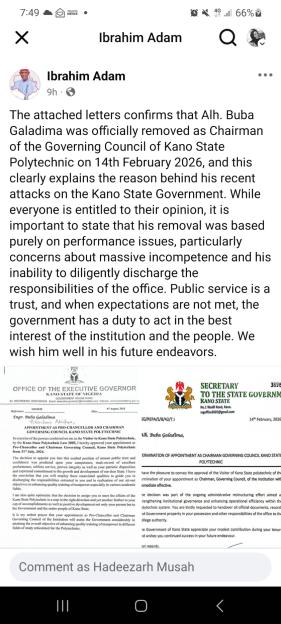Stakeholders from various sectors have brainstormed on the need to integrate gender equality in policy making in Nigeria.
The event – 4th National Consultation Meeting/Policymakers Engagement programme – was part of the Africa LEEPS project aimed at strengthening knowledge translation, focusing on promoting gender equality at all stages of the policy-making process.
A gender expert from Makerere University Uganda, Dr. Anna Ninsiima, in her lecture emphasized that gender equality is critical for achieving development and sustainable development goals, noting that the UNDP recognizes that sustainable human development will not be fully achieved unless women, men, boys and girls can contribute to their societies on an equal basis.
She further highlighted the impact of gender inequalities on females, including low self-esteem, low levels of aspiration, dependency, low levels of education and inability to exploit one’s potential.
Ninsiima stated that when men resist gender equality, they prefer to maintain the status quo, which is not only dangerous to women’s well-being but also detrimental to men, leading to more sexual partners, stress, poor health-seeking behavior, violence, and death.
Professor, Jesse Uneke, Vice Chancellor of David Umahi Federal University of Health Sciences, Uburu Ebonyi State, founder and Director of the African Institute for Health Policy and Health Systems Nigeria, in his lecture on ‘Gender Mainstreaming and Equality Analysis in Priority Policy Areas for the Development of the Policy Brief’, explained that gender analysis is the study of differences in assigned gender roles, conditions, needs, participation rates, access to resources and development.
He emphasized that gender analysis is critical not only at the onset of policy design but also throughout the policy-making and implementation process.
Uneke noted that gender-responsive policy takes into account both women’s and men’s interests and need, and formulation of policies that consider the unique needs of sub-groups within the dominant gender framework.
He also explained that institutionalizing gender mainstreaming means integrating a gender equality perspective at all stages and levels of policies, programs and projects.
The vice chancellor highlighted the aims of gender mainstreaming, including institutionalizing gender equality and mainstreaming gender-sensitive practices and policies, and solving hidden gender inequalities.
He emphasized that integrating gender and equality in the policy-making process involves problem identification, policy design, policy adoption, policy implementation and oversight.
Speaking after the event, some of the participants, Mrs Rosemary Nduoma from the National Assembly and Ernest Agwu from the National Health Insurance Authority, expressed satisfaction with the workshop, describing it as timely, educative, informative and strategic.
The event was organized by the LEEPS Project in conjunction with the African Institute for Health Policy and Health Systems Nigeria and African Institute for Development Policy (AFIDEP) Kenya, with support from the International Development Research Centre (IDRC) of Canada.







